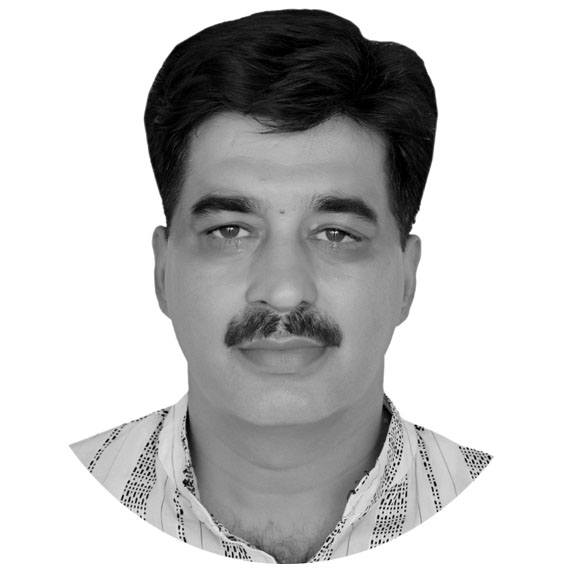Raja Muhammad Sajjad Khan
IN every armed conflict women are soft target. Women are directly or indirectly victim of occupation and human rights violations. Women in India-occupied Jammu and Kashmir have been facing human rights violations since 1947 but from 1989 they are suffering a lot. From January 1989 to 29 February 2020 in IOJK 95,506 civilians have been killed and 22,911 women were widowed. Occupational forces are systematically targeting women and enjoying impunity. Indian occupational forces are using rape and molestation of women in IOJK as weapon of war. Mostly rape cases passed unnoticed or unreported. From January 1989 to 31 January 2020 in IOJK 11,178 cases of rape and molestation were reported. International Covenant on Civil and Political Rights (ICCPR) prohibits torture and other forms of degrading, inhuman and cruel treatment and it has been ratified by India. Rape is also prohibited through common Article 3 of Geneva Convention which is also ratified by India. The decision of International Criminal Tribunal For Rwanda in a case,” Prosecutor v Jean Paul Akayes” is very important to define the intensity of crime of war. The court declared that rape is not only a crime against humanity but if it is intentionally done to destroy a particular group also constitutes genocide. Article 07 of Rome Statute of International Criminal Court considers rape as crimes against humanity and Article 08 included rape in war crimes.
UNSC adopted many resolutions for the protection of women rights. Resolution, 1325(2000) emphasizes that it is the responsibility of the states to end impunity for crimes against humanity, war crimes including sexual and other forms of violence against women and girls. Resolution 1820(2008) is more specific which says, “Sexual violence as a tactic of war and a matter of international peace and security.” There are many reported cases of mass rape. On 23 February 1991, more than 800 soldiers of the 4thRajputana Rifles entered two adjacent villages Kunan and Poshpora at 11:00 PM and cordoned off the village. Males were interrogated overnight. The soldiers gang-raped almost 80-100 women of those villages that night till 9:00 AM as well as the next day. Women were raped without consideration of their ages and physical conditions. The raped women were from 13 years age to 80 years. There are many reported incidents of mass rape, some are from Chak Saidapora, Haran, Chhanpora (Srinagar), Pazipora Kupwarah, Gurihakhar district Handwara, Hyhama, Wavoosa, Hundwara and Kathua.
A new term half widows introduced which is used for the women whose husband had been forcefully disappeared and their wives did not know about their whereabouts. In India-occupied Kashmir, the Indian Occupational forces and police had forcefully disappeared 8000 to 10,000 people. According to the report of Association of Disappeared Persons there are 1500 half widows in IOJK. These half widows are facing economic issues, social problems, insecurity and health problems because of the missing husbands. Kashmiri women are facing physical and mental health problems due to conflict and oppression of Indian occupational forces. An NGO, MSF conducted a survey of IOJK in 2006 and found, “there is an alarming increase in the suicide rate by 400 times; almost 50% women have Post Traumatic Stress Disorder.” Due to this conflict women are also facing cardiac problems, nervous breakdown and infertility. Many victims of rape could not share their problem with anyone.
In Jammu and Kashmir mostly the male members of family are bread earner and women are responsible for work at home. In last 30 years almost 95 thousand people had been killed and eight to ten thousand are missing. These all families had lost their sources of income. This had affected education of their children and even their grooming. After the 1989, many people migrated from IOJK to Azad Kashmir. The people of IOJK left their homes, livelihood and property due to life threat and torture from Indian forces. The women are facing more problems due to these displacements. There are 40217 persons living in Azad Kashmir, who had migrated from IOJK. These people are members of divided families, mother is living in IOJK and son is in Azad Kashmir, one sister is in one side of LoC and other is in other side. These people cannot share their happiness and sorrows. There are many conventions, resolutions, laws and commitments by international community for protection of rights of women. These laws are also providing remedies to victims but women in IOJK are facing state terrorism by Indian occupational forces from last 30 years and even a single perpetrator was not made accountable. Women of Kashmir are facing rape, killing, torture, inhuman treatment and violation of their every right. Rape is war crime and also crime against humanity but countries claiming themselves as champions of human rights are busy in their financial interests and politics. International community should take notice of these human rights violations and should change its double standards.
—The writer is PhD (Law) Scholar at IIU, Islamabad.










